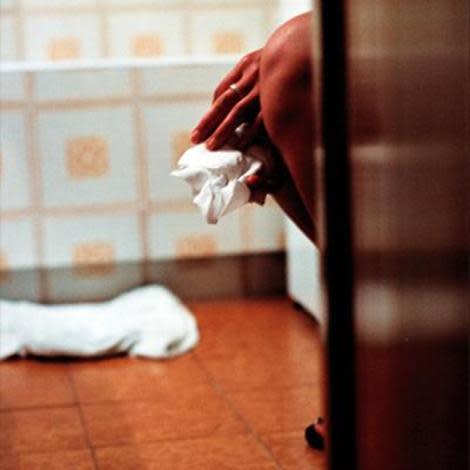5 DIY Health Checks that Could Save Your Life

Today there are tests for almost everything. Luckily, these five checks don't require waiting in line to see a doctor or filling a prescription that may or may not be covered by your insurance. Read on for five DIY health checks you can perform that might just save your life:
1. Urine: Your first trip to the toilet in the morning can detect a lot more than pregnancy or a urinary tract infection. More than 70 markers in your urine can determine how your entire body is functioning and are key to preventing degenerative diseases, unknown gluten intolerance, low antioxidant levels that make you vulnerable to oxidative stress, and more, says Nancy Guberti, certified nutritionist and healthy lifestyle coach.
RELATED: Relaxing 101: How to Reduce the Stress in Your Life
For instance, "accumulation of specific organic acids in urine often signals a metabolic inhibition or block," Guberti says. The abnormality could mean that you're vitamin deficient.
2. Your weight: Unexplained weight gain and weight loss can also signal a major issue with your health, says Dr. Julie Chen, an integrative physician and health expert. Don't ignore them. If you unexpectedly gain a lot of weight, this can signify hypothyroidism, adrenal disorders like Cushing's syndrome, fluid retention as in congestive heart failure or renal disease, and pregnancy.
If you unexpectedly lose a lot of weight, this can signify cancer, hyperthyroidism, autoimmune diseases, chronic diseases, and depression.
3. Your teeth: Many people don't realize the importance of a dental checkup. Dr. Lucy Slutsky, a general dentist based in West Orange, NJ, points out, "Oral hygiene and checkups are vital because dental problems can often be a sign of other health-related problems tied to the heart, lungs, digestive system, or other parts of the body."
Dental checkups can also give dentists the opportunity to check for early signs of oral cancer.
Your skin: You should be in the habit of checking your skin at least once a month to look for changing moles or non-healing lesions, says Dr. Tim Abou-Sayed, board-certified plastic surgeon. "Remember that the only 'good tan' is one you are born with that comes naturally; when you get that tan from sunning yourself at the beach, you are actually damaging your skin with the sun's radiation," Abou-Sayed adds.
"A melanoma, which can be fatal, may begin as something so seemingly innocent as a slightly darkened mole, so a simple self-exam of the skin can alert you that you need to go to a dermatologist for a full screening."
Dr. Glenn Kolansky, board-certified dermatologist in Red Bank, NJ, suggests you use a mirror for the back or hard to reach places, or have a significant other assist you. "It is also important to realize that a skin exam is only good on the date it is performed. Growths can change a day, a week, or a month later," he says.
RELATED: 8 Simple Ways to Detox Your Body
5. Your home: Don't forget to also check your surroundings-it indicate health issues and even save your life. "To live a healthier lifestyle, it is extremely important to maintain a 'healthy home' and be aware of toxins and other irritants that can exist in your living space and make you feel unhealthy," says Caroline Blazovsky, national healthy home expert and certified mold remediator.
"If you notice headaches, congestion, respiratory irritation, asthma, or allergies, you should have your home tested for mold, allergens, and chemicals. Molds, for example, can produce spores, mycotoxins, and MVOCs (chemicals produced by mold), which can give you an array of symptoms and cause you to feel unwell."
Blazovsky suggests to monitor such conditions every few years to every year to see if your home is within safe limits. You can even try a mold test kit of your own like EXAMINAIR.
More on SHAPE:
Our Favorite Health Blogs Written by Actual Health Pros
12 Steps to Better Sleep
30 Beauty Secrets You Need to Know!
